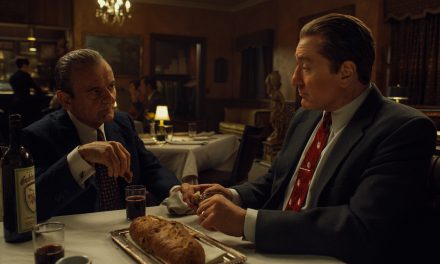By Lane Billings
Multimedia Editor
At the risk of losing credibility as someone who attempts to write about music in a somewhat-professional way, it’s probably worth prefacing everything I am about to say with a confession: I love Frank Ocean. This love has often led me to cross the line into what I would call a certain kind of Belieber-esque fandom. For proof, go ahead and Google “Lane Billings Frank Ocean.” Then ex-out of that window, and don’t read any of it. Really, guys, don’t.
What I think makes Frank Ocean so powerful is the way he tells stories – whether they belong to him, to his family or to the people living in his head. The humanistic bent of his song writing has been apparent from his first mixtape, Nostalgia Ultra.
From “Swim Good,” a meditation on suicide that sounds like water itself, to “Novacane,” the most moving song about dental supplies you’ll likely ever hear, Ocean’s narrative voice begs his listeners not just to hear him, but to trust him.
“Thinkin Bout You” draws the listener in with a description of Ocean’s bedroom. All of Ocean’s strongest moments are his most intimate. Much like Marvin Gaye, the soul singer whose socially conscious oeuvre Ocean draws on the most, the allure of Ocean’s voice is in its understated warmth – its invitation to listen and to care. It was Ocean’s ability to tell stories that finally caught the world’s attention this summer, when a TextEdit file posted on his Tumblr recalled his first love (incidentally, a man). The media buzz surrounding the letter – which, some speculated, was released to get people talking about his impending major-label debut, then just one week away – culminated in Ocean’s “Late Night With Jimmy Fallon” TV appearance: a palpably tense performance of the most explicitly “gay” song on Channel Orange, “Bad Religion.” (“I could never make him love me,” one line said). The ensuing Channel Orange built on Nostalgia Ultra’s lyrical trump card: Ocean’s ability to do what playwright Arthur Miller once called “seeing it human.” In his personal and voyeuristic accounts of addiction, isolation and sexuality gone wrong, Ocean immersed his listeners in uncomfortable, foreign worlds – all while testing the boundaries of traditional song structures and sonic textures associated with R&B. Today, Channel Orange is widely regarded among music critics as the best album of 2012, and is predicted to win many of the Grammy categories for which it is nominated.
But what comes next?
If you’ve been watching Ocean closely since Channel Orange, you’re probably a bit nervous. First, there were the unceremoniously cancelled tour dates with Coldplay in Europe.Then, there was the Lollapalooza performance cut short by vocal issues. On the music end of things, there was “Blue Whale,” a shapeless, hookless rap that seems to crumble under its own lack of purpose.
There was “Wise Man,” an undercooked, understated thing Quentin Tarantino opted not to place on Django Unchained. There was the GQ interview, where Ocean waxed poetic about how he’d produced the best album of his generation, and rambled on about never making an album again – in favor of writing a novel, which, okay, I would read.
There have been tabloid moments, too: a misdemeanor DUI charge on New Year’s Day, and a brawl over a parking space with none other than Chris Brown. I’m not here to pass judgment on a couple of little mistakes; after all, Ocean is 25, and no one expects him to keep on cranking out Channel Orange-esque masterpieces – at least not immediately.
But the past months of questionable behavior cast a shadow of doubt on what will define Ocean’s legacy. They also bring up pressing questions about what it means to trust artists we love. Does art like Ocean’s – that is, art that is confessional and highly personal – lose some value when we distrust the artist?
How will Ocean’s own song writing change now that he’s fully immersed into the limelight? The emotional impact of his music hinges on his listeners’ ability to trust his voice, and, even more, to believe that the stories he tells us are told in good faith. Ocean’s music privileges us to see the world through his eyes – for all of our sakes, I hope he can keep on seeing it human.
– By Lane Billings
lane.billings@emory.edu
The Emory Wheel was founded in 1919 and is currently the only independent, student-run newspaper of Emory University. The Wheel publishes weekly on Wednesdays during the academic year, except during University holidays and scheduled publication intermissions.
The Wheel is financially and editorially independent from the University. All of its content is generated by the Wheel’s more than 100 student staff members and contributing writers, and its printing costs are covered by profits from self-generated advertising sales.





